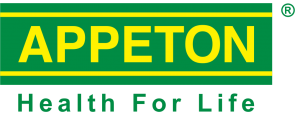From Belly to Birth: Growing Malaysia’s Next Generation
As we celebrate Malaysia’s independence this August, we’re reminded of the strength, resilience, and unity that built our nation. But let’s not forget the quiet power shaping our future – you, mama. Just as a strong nation is built on the well-being of its people, it all begins with healthy mothers and babies.

Pregnancy and breastfeeding are beautiful life changing journeys filled with excitement and love. But behind the glow is a very real need: your body works overtime to grow and nourish a new life and that takes a lot out of you. What you eat and how well you’re nourished directly impacts your baby’s growth, immunity, and development.
Even if you’re eating fairly well, chances are you’re still missing out on important nutrients — especially during pregnancy and breastfeeding. Recent studies¹,² show that many Malaysian mothers aren’t getting enough essential vitamins and minerals — even with a decent diet.
Let’s take a closer look at what the research found:
- Low in Vitamin D and Calcium3
- In rural areas, 1 in 3 pregnant women were found to have low vitamin D, which can affect the quality of breast milk.
- In urban areas, 1 in 4 women had low calcium, often related to low vitamin D.
- Common reasons? Not drinking enough milk (less than 2 glasses a day) and limited sunlight exposure – often due to indoor lifestyles or frequent sunblock use.
Why it matters: Vitamin D and calcium aren’t just for strong bones. They also help lower the risk of pregnancy complications like preeclampsia3, and they’re essential for your baby’s healthy development.
- Iron Deficiency is still common4
- If you follow a vegetarian or limited diet, you might struggle to meet your daily iron needs.
- Iron is crucial during pregnancy — it helps your body produce extra blood and ensures your baby gets enough oxygen.
Not getting enough iron? You may feel constantly tired and face a higher risk of anaemia.
Even after delivery, your body still need high levels of vitamins A, B12, iron, and zinc, to produce nutritious breast milk and supporting your baby’s immune system and brain development. And here’s something important — studies show that when pregnant moms don’t meet their daily nutrient needs, their babies are more likely to be born with low birth weight5.
Let’s face it — between cravings, nausea, and juggling tight schedules, eating a perfectly balanced diet can feel nearly impossible. That’s where supplementation becomes essential. Appeton Essentials Natal Care is specially formulated to support pregnant and lactating mothers in filling these nutritional gaps. Each tablet contains 17 essentials vitamins and minerals, plus Simethicone to ease bloating and gas – common issues many expecting moms face. And if you’re always on the go? No problem. It’s conveniently packed in sealed blister packs — easy to carry in your handbag, with no bulky bottles or messy spills.
This Merdeka, let’s celebrate the strength within. Give yourself the freedom to feel your best. Support your motherhood journey with Appeton Essentials Natal Care, because a healthy mom builds a healthier generation. And that’s the kind of independence truly worth celebrating.

Learn more: Appeton Essentials Natal Care
References:
- Mohamed, H.J.J., et al. (2022). Maternal diet, nutritional status and infant birth weight in Malaysia: a scoping review. BMC Pregnancy Childbirth 22, 294 (2022). https://doi.org/10.1186/s12884-022-04616-z
- Agustina, R., et al.,(2023). Nutrient intakes of pregnant and lactating women in Indonesia and Malaysia: Systematic review and meta-analysis. Frontiers in Nutrition, 10. https://doi.org/10.3389/fnut.2023.1030343
- Mohamed, H.J.J., et al. (2014). Maternal serum and breast milk vitamin D levels: findings from the Universiti Sains Malaysia pregnancy cohort study. PLoS One. 9:e100705.
- Haniff J, et al. (2007) Anemia in pregnancy in Malaysia: a cross-sectional survey. Asia Pac J Clin Nutr., 16:527–36.
- Keats, E. C., et al., (2019). Multiple-micronutrient supplementation for women during pregnancy. The Cochrane database of systematic reviews, 3(3), CD004905. https://doi.org/10.1002/14651858.CD004905.pub6
